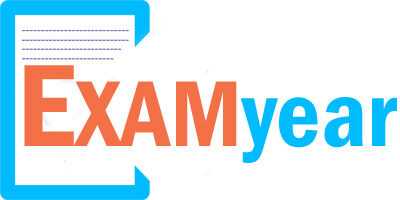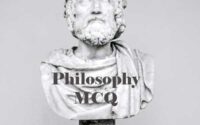Philosophy Question Papers
On this page, Applicants can check the below links for downloading the Philosophy Question Papers. The Philosophy Question Papers will be helpful for the applicants in their preparation. Hence, the people can begin the practice by downloading Philosophy Question Papers.

The Philosophy Question Papers may not contain the originally asked questions. Free downloading links of the Philosophy Question Papers are enclosed below.
Question Papers on Philosophy
1. Who maintained that : “Philosophers have not done justice to the distinction, ….between knowing that something is the case and knowing how to do things.”
(A) Ayer
(B) Austin
(C) James
(D) Ryle
2. According to Vaisesikas an eternal substance must be of :
(A) minutest size
(B) larger than minute size
(C) minutest or largest size
(D) largest size
3. The word Rta means:
(A) Reincarnation
(B) Indebtedness
(C) Universal orderliness
(D) Self-control
4. Dream state corresponds with:
(A) Sthula Sarira
(B) Suksma Sarira
(C) Karana Sarira
(D) Karya Sarira
5. Carvaka criticism of anumana as was aimed at:
(A) acceptance of sense-data
(B) establishment of materialist doctrine
(C) rejection of otherworldly beliefs
(D) justification of revelation against speculative reasoning
6. According to Jainism Gunas and Paryayas respectively are……………. .
(A) primary qualities and secondary qualities
(B) fixed characteristics and alternative characteristics
(C) enduring characteristics and changing characteristics
(D) good qualities and bad qualities
7. According to early Buddhism conditioned things are perishable because they:
(A) are destroyed by opposite conditions sometime or the other
(B) undergo different stages such as origination, growth, decay and destruction
(C) are characterised by change as their essential nature
(D) are illusory forms of momentary consciousness
8. The term Tanm tra refers to:
(A) Five organs of sensory knowledge
(B) Five types of objects of knowledge
(C) Five organs of Karma
(D) Five types of Mahbhtas
9. According to Vivekanand God, Nature, Soul and Universe are:
(A) inconvertible terms
(B) convertible terms
(C) epistempological terms
(D) moral terms
10. According to Aurobindo, the correct sequence of evolution is:
(A) Mind, Illumined Mind, Higher Mind, Over Mind, Intuition-Super Mind
(B) Mind, Higher Mind, Illumined Mind, Intuition, Over Mind, Super Mind
(C) Mind, Over Mind, Illumined Mind, Higher Mind, Intuition, Super Mind
(D) Mind, Intuition, Higher Mind, Over Mind, Illumined Mind, Super Mind
11. According to Iqbal, the moral and religious ideal of man is:
(A) Denial of the self
(B) Abstraction of the self
(C) Affirmation of the self
(D) Sublimation of the self
12. For Rabindranath Tagore, God is:
(A) Super Mind
(B) Super Personality
(C) Transcendent entity
(D) Being without existence
13. For Mahatma Gandhi:
(A) Truth is the means and Ahimsa is the end
(B) Truth and Ahimsa both are means
(C) Truth and Ahimsa both are ends
(D) Ahimsa is the means and Truth is the end
14. According to Socrates, virtue is:
(A) Power
(B) Religiosity
(C) Knowledge
(D) intelligence
15. According to Leibnitz city of God is:
(A) a moral world in the natural world
(B) a moral world separate from natural world
(C) a natural world
(D) non-existent
16. St. Anslem’s ontological proof for the existence of God refers to being:
(A) than which nothing greater can be conceived
(B) who is the first cause of the Universe
(C) who is the transcendent ground of all values
(D) who is intelligent mind responsible for the Universe
17. Advaitin’s rejection of difference is based on:
(A) Bheda- sruti
(B) Abheda- sruti
(C) Bheda-abheda- sruti
(D) Vidhi-vakyas
18. According to Aristotle God is:
(A) unmoved, eternal, perfect, incorporeal and pure actuality
(B) unmoved, eternal, perfect, incorporeal and pure potentiality
(C) unmoved, eternal, perfect, corporeal and pure potentiality
(D) unmoved, eternal, perfect, corporeal and pure actuality
19. In matters of knowledge Plato and Aristotle give primacy to:
(A) both matter and form
(B) matter but not form
(C) form but not matter
(D) neither form nor matter
20. One of the permanent legacies of Platonism is the conviction that reality:
(A) is mental
(B) is parasitic on God
(C) is a myth
(D) lies in form
More Question Papers on Philosophy
| Question Papers | Question Bank |
| MCQ Objective | Practice Set |
| Selected Question | Mock Test |
| Typical Question | Old Questions |
| Test Papers | Sample Papers |
| Important Question | Model Question |
21. According to St. Augustine the principle of morality is a Love of:
(A) Mankind
(B) Animal
(C) Knowledge
(D) God
22. According to Descartes a thought in order to be true should be:
(A) clear, distinct and empirically verifiable
(B) clear, distinct and beyond ground of doubt
(C) clear, distinct and intuitive
(D) clear and never doubted
23. To prove the existence of God, Descartes uses:
(A) causal argument alone
(B) ontological argument alone
(C) both causal and ontological argument
(D) both pragmatic and causal argument
24. Truths of reason according to Leibniz are justified by:
(A) law of non-conrtradiction and principle of sufficient reason
(B) principle of sufficient reason alone
(C) law of contradiction alone
(D) law of intuitive imagination
25. Locke’s rejection of innate ideas does not apply to the ideas which are known to be true by direct:
(A) Experience
(B) Intuition
(C) Inference
(D) appeal to conscience
26. Berkeley is known for his:
(A) Nominalism
(B) Realism
(C) Materialism
(D) pragmatism
27. According to Hume, Causal necessity is:
(A) Spiritual
(B) Psychological
(C) Logical
(D) religious
28. According to Kant, space and time are:
(A) Ideas of reason
(B) Categories of understanding
(C) Paralogisms of reason
(D) Forms of intuition
29. Kant’s transcendental idealism is compatible with:
(A) Humean scepticism
(B) Empirical realism
(C) Platonic idealism
(D) Subjective idealism
30. Russell’s theory of definite description is important because it helps us in understanding propositions involving the use of:
(A) empty terms
(B) denotative terms
(C) meaningless terms
(D) infinite terms
31. According to Moore goodness is:
(A) simple, analyzable quality known by intuition
(B) complex, unanalyzable quality known by reason
(C) simple, unanalyzable quality known by intuition
(D) simple, unanalyzable quality known by experience
32. According to later Wittgenstein “to understand a sentence” means to understand:
(A) its individual words
(B) a language
(C) its grammar
(D) its syntax
33. According to Spinoza substance:
(A) is always the subject
(B) exists in itself and conceived by itself
(C) is material
(D) is the unknown foundation of qualities
34. According to earlier Wittgenstein a proposition is:
(A) a picture of reality
(B) a true thought
(C) an imaginary thought
(D) a false thought
35. According to Ryle, a category mistake occurs due to our failure to understand the:
(A) semantic form of a statement
(B) logical form of a statement
(C) ontological form of a statement
(D) pragmatic form of a statement
36. For Hegel the essence of spirit is:
(A) Freedom
(B) Intention
(C) Consciousness
(D) Thought
37. Will to power, according to Nietzsche is good because it makes possible:
(A) the annihilation of lower form of life
(B) the evolution of higher types of life
(C) the continuity of life
(D) to relinquish poor quality of life
38. The phenomenological epoche means:
(A) doubting the belief regarding the physical world
(B) methodological scepticism
(C) bracketing all phenomena
(D) suspension of natural attitudes
39. Husserl developed pure logic and phenomenology to free philosophy from:
(A) Induction
(B) Speculation
(C) epistemological error
(D) psychological error
40. According to Ny ya, when we cognise an object, we can be sure:
(A) about the truth of the cognition
(B) about the falsehood of the cognition
(C) neither about truth nor about falsehood of the cognition
(D) that the cognition is neither true nor false
41. According to K.C. Bhattacharya, Theoretic Consciousness develops in the following order:
(A) Unconscious, subconscious, spiritual and transcendental
(B) Empirical, objective, spiritual and transcendental
(C) Empirical, rational, intuitional, mystical
(D) Physical, metaphysical, mystical, epistemological
42. According to Radhakrishnan, the following statement is true with regard to intuition and intellect:
(A) Both make use of symbols
(B) Intuition makes use of symbols but intellect does not
(C) Intuition does not make use of symbols but intellect does
(D) Neither intuition nor intellect uses symbols

